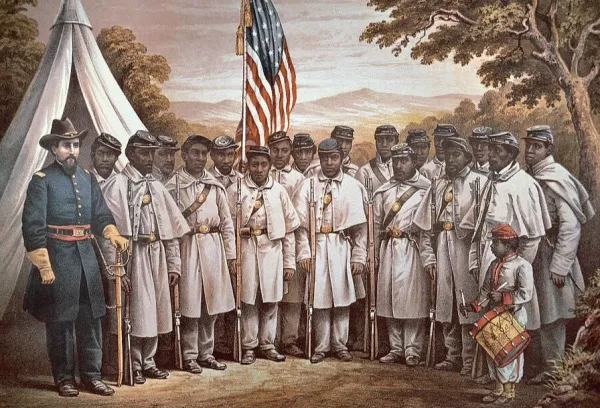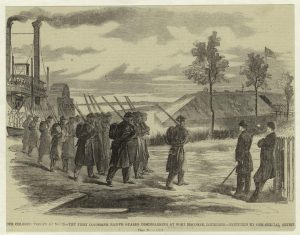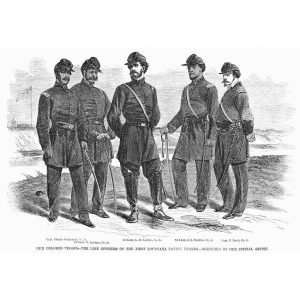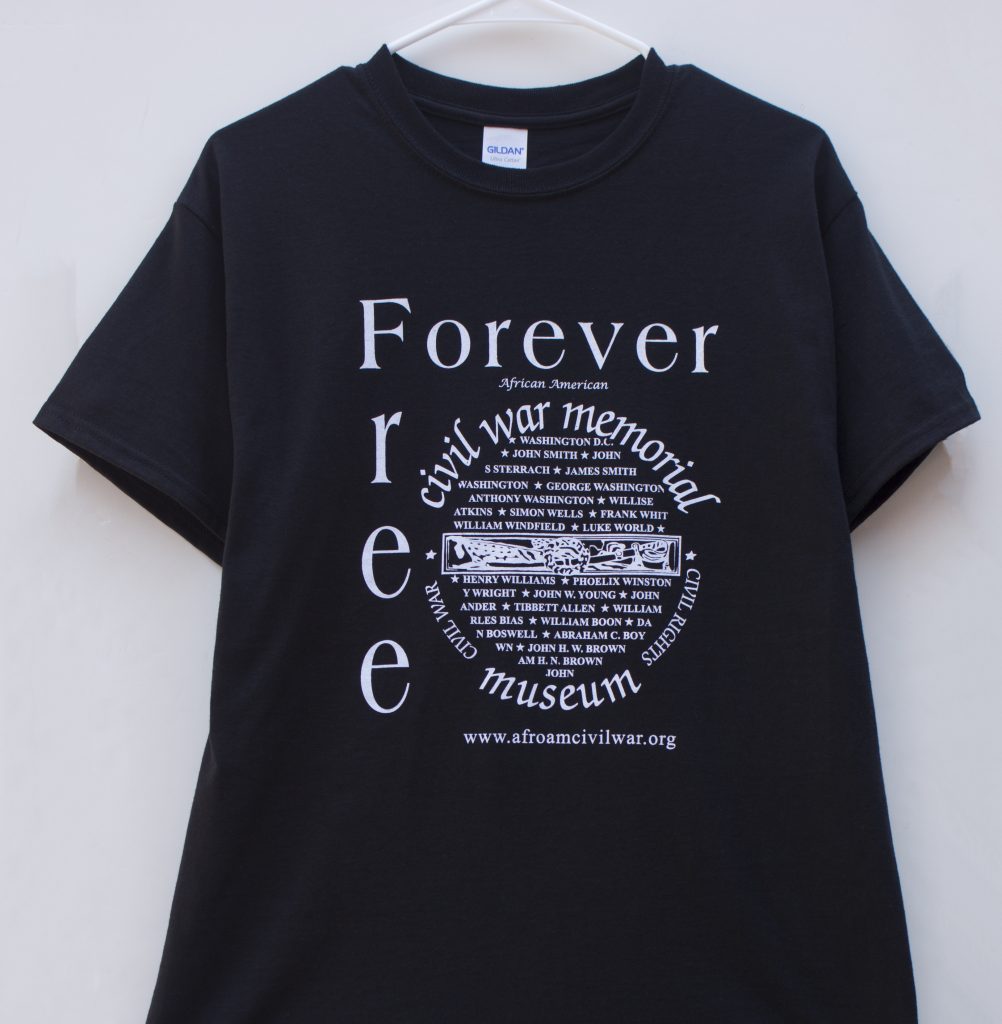INDOOR EXHIBIT IS CLOSED
The Volunteer Militia Act of 1792 required that every free able-bodied white male citizen of the respective States, resident therein, who is or shall be of age eighteen years, and under the age of forty-five years be enrolled in the militia. Because of this mandate, African Americans are barred from serving in the militia. July 17, 1862 and take out the last sentence “These men would later participate in some of the war’s most notable campaigns and battles, including Antietam, Vicksburg, Gettysburg, and Sherman’s Atlanta Campaign.”





